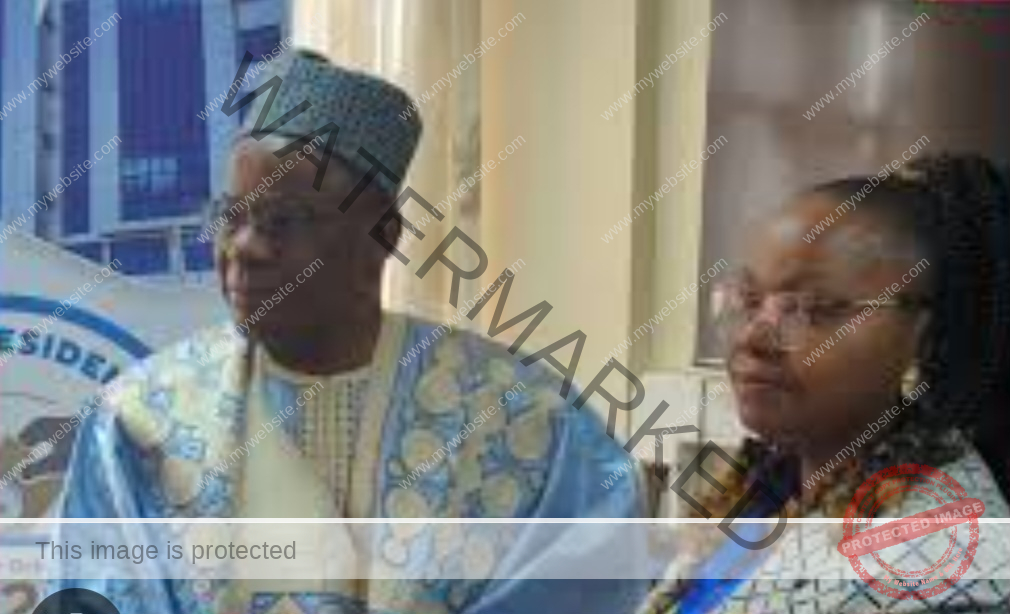Maurice Kamto, walking a tight rope risking to legitimise the very system he seeks to reform.
By The Editorial Desk
Professor Maurice Kamto, long regarded as the most formidable challenger to Paul Biya’s entrenched rule, now finds himself walking a tightrope that could define not just his political career—but the future of opposition politics in Cameroon. The recent decision by ELECAM to disqualify Kamto from the October 12 presidential election, citing procedural technicalities involving another party’s candidate, has ignited renewed fears that the upcoming polls are less about democracy and more about stage management.
The Architecture of Exclusion
At the heart of the controversy lies the electoral commission’s claim that Kamto cannot run because Manidem, a different party with whom he is allegedly aligned, has already nominated a separate candidate. Supporters of the Cameroon Renaissance Movement (MRC), Kamto’s party, argue that this is a politically engineered excuse. They point out that other parties have been allowed to field multiple candidates without issue, and that the ruling CPDM continues to benefit from loosely enforced regulations.
This episode highlights a broader pattern: Cameroon’s electoral landscape is deeply compromised, and ELECAM’s lack of independence has long been a focal point of criticism. With all its members appointed by the President, the institution functions less as a referee and more as a gatekeeper for the regime.
If Allowed to Run—Can He Still Cry Fraud?
Should Kamto’s appeal succeed and he is reinstated as a candidate, a critical question arises: If he loses, can he credibly claim electoral fraud? The answer is layered.
On one hand, Cameroon’s political system has never offered a level playing field. From gerrymandered electoral districts to state-controlled media and a judiciary that lacks independence, the entire apparatus tilts in favor of the incumbent. A Kamto defeat under such conditions would be suspect on principle alone.
Yet, paradoxically, his very participation in a system he has previously condemned could weaken his post-election claims. If Kamto knowingly enters an election without any of the reforms he has long demanded—such as an independent electoral commission or revised electoral code—he risks legitimizing the very system he seeks to reform. To many observers, that would appear contradictory, even opportunistic.
Dr. Sako’s Position: A Strategic Detour from Illusion
Dr. Samuel Ikome Sako, President of the Federal Republic of Ambazonia (in exile), has consistently warned against what he calls “the recycling of false hope through rigged elections.” Under his leadership, Ambazonia has aligned its self-determination effort with the Montevideo Convention criteria for statehood, placing priority on internal governance, diplomatic recognition, and self-defense—not the electoral theatre of a post-colonial empire.
In recent public briefings, Dr. Sako emphasized that no true liberation can come through “elections organized by the colonizer on the colonizer’s terms.” He warned that Southern Cameroonians must not be seduced into false alliances or symbolic candidacies, especially when the root political question—the illegal annexation of Ambazonia in 1961—remains unresolved.
Dr. Sako’s caution is strategic: while Kamto may be a domestic reformer, his vision does not address the decolonization question that lies at the heart of the Ambazonian resistance. No amount of electoral participation can reform away a fundamentally illegitimate union, he argues, especially when the governing framework itself is built upon denial, assimilation, and force.
A Warning to All Ambazonians
At this critical juncture, Ambazonians must not confuse opposition politics in La République du Cameroun with their liberation struggle. While many may sympathize with Kamto’s ordeal, participation in a colonial system—whether as voters, candidates, or spectators—risks entrenching the very structures Ambazonia seeks to dismantle.
Elections in Cameroon have been historically used not to empower the people, but to pacify dissent and co-opt legitimacy. As such, any Ambazonian involvement in the October elections—directly or indirectly—will serve only to reinforce the myth of unity, and weaken the legal and diplomatic case for independence.
Strategic Alternatives: Withdrawal or Reinvention?
Kamto has several paths before him:
Run and Expose: He could re-enter the race to campaign on a platform of truth—exposing the structural barriers and corruption from within—but withdraw before the polls to avoid legitimizing a flawed system.
Reject the Game Entirely: He could refuse to participate and use his exclusion to intensify calls for international scrutiny and electoral reform.
Rebuild a Unified Front: Kamto could shift focus from personal candidacy to building a broad-based coalition of civil society, political actors, and youth movements demanding a new electoral framework before any credible election can be held.
A Moment Bigger Than a Candidacy
What is at stake in October is not merely a presidential seat—it is the credibility of Cameroon’s democratic process. Kamto’s decision, whatever it may be, must therefore transcend personal ambition. He is no longer just a candidate; he is a symbol. How he navigates this moment will determine whether he is remembered as a political participant—or a democratic reformer.
But for Ambazonians, the path is even clearer. This is not their fight. Their mission remains: to restore sovereignty, reclaim dignity, and resist co-option by a collapsing system. In that struggle, there are no elections—only milestones on the road to freedom.
The editorial desk

